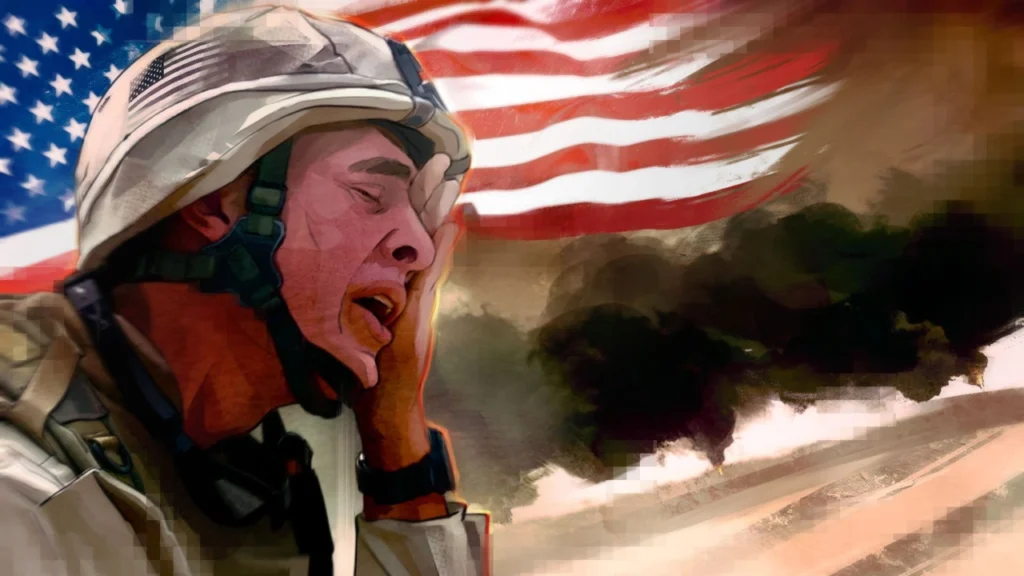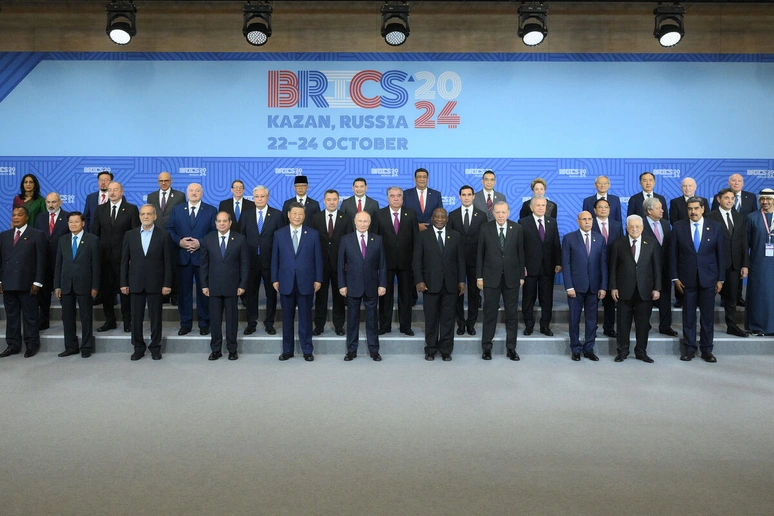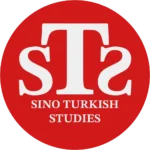While the geopolitical balance is being turned upside down in 2025, will the world face a new threat of war? The answer to this question will be shaped by the latest tensions that emerge in various conflict areas and the conditions determined by the intensity of the conflicts within the CIA-Pentagon-Wall Street-Senate and, of course, the American people in the new era of US hegemony under Trump. Of course, the main factor contributing to this lies in the rising countries’ leading role in the joint creation of the new international order.
Defeats of Imperialist Armies
Recently, we have witnessed the weakening of the capacity of the US-NATO imperialist armies to defeat the peoples of the world and to instill fear in oppressed nations. On the contrary, the anti-imperialist resistance of the oppressed peoples is emerging victoriously and frightening the imperialist armies.
The Taliban, who were tried to make opium addicts in Afghanistan and were despised in the West as “mujahideen riding donkeys”, buried 500 thousand American soldiers, fully equipped from head to toe, in the “grave of empires” after a 20-year war and forced them to flee Afghanistan shamefully. In Yemen, which was despised as the “Army in Slippers,” the Houthis made the Red Sea a tight squeeze for imperialist military and commercial ships and achieved great success. Western trade companies rediscovered the “Cape of Good Hope”. Israel encountered great resistance from the Palestinians led by Hamas in the inhumane war it waged in Gaza. Despite the massacres committed by the Israeli army, which violated all humanitarian and war laws, it has not achieved a clear victory for more than a year.

The countries of West Africa, which have rich underground resources, continued to slap French and American imperialism one after another. African states and their people are coming to the forefront of the struggle for self-determination by institutionalizing their independence.
These examples show that the military machine of imperialism is increasingly facing resistance and is unable to maintain its hegemony through violence. However, this does not mean the US hegemony has become completely ineffective.
The Collapse of the US-Centric International Order
The US-centered international order is collapsing. NATO’s deterrence is in trouble; the Ukraine war is a striking indicator. At the same time, with the decline of US hegemony, the construction of a multipolar order is accelerating. BRICS+ and the Shanghai Cooperation Organization (SCO) constitute the institutional structure of this new order. Now, these institutions have the potential to reshape the political and economic balance worldwide by taking a more active stance (military, financial, and cultural) and creating complete alternatives to the Western-style system in all its aspects, also by using their increasing appeal in developing countries.

Countries Vacillating Between Eurasia and the Atlantic
Some medium and large power countries, primarily Turkiye, Argentina, and India, have the potential to break away from the Atlantic-centered system and gain economic and political benefits. However, these countries are currently adopting a middle-of-the-road stance and cannot fully utilize these opportunities. Turkiye’s inadequate stance on integration with Eurasia and its steps do not inspire confidence in Asian countries. India’s complicated relationship with the Western alliance prevents these countries from reaching their potential by breaking away from the Atlantic system. Argentina is also in a period of stagnation, having given up on BRICS, which it had the chance to become a full member of in 2023, due to the withdrawal of its new right-neoliberal President, Milei.
However, the course of the international order will eventually force these countries to choose between the Atlantic and Eurasia. The situation for these countries is like that of the middle classes, which Marx described in the 19th century as “those who waver between the bourgeoisie and the working class.” Just as these so-called “middle classes,” which constitute a large mass in the capitalist system, were deprived of capital and expelled from the center and turned into relatively advantageous “wage workers,” this is also the fate of these countries. They are not countries like Italy, Germany, or Japan, which are given a central place in the Western system and allowed to develop economically so that they do not start a “war of revenge” by the USA. They are Asians, Africans, and Latin Americans, who are described as “negroes” by the West and are condemned to be on the periphery of their system.
Russia and China’s Key Role
Russia could achieve victory in the war in Ukraine this year. This possibility would test the limits of Western support for Ukraine and Russia’s military and political resolve. The end of the Ukraine war in Russia’s favor would further question the deterrence of NATO and the Western alliance, especially in Europe and around the world.
China is another key player in the geopolitical rupture. Last year, it increased its military budget, including creating many reserve forces. Today, China, which has the largest navy in the world, is theoretically the largest power in the Asia-Pacific region. However, considering that China’s military experience was last tested 70 years ago in the Korean War, Trump’s policy of containment in the Asia-Pacific, as part of his “global contraction strategy,” carries serious risks.
Russia, realizing that it had made a big mistake by abstaining from the overthrow of Gaddafi in Libya in 2011, actively participated in the imperialist intervention in Syria by siding with Assad in 2015. Regardless of the outcome, a precedent has been formed here. This is the crossroads that China is facing. Either it will continue with its strategy of “silent and passive political support that prioritizes economic development,” or it will say, “the fall of Gaddafi and Assad is also, in a sense, my containment” and will once again evolve into a more active and revolutionary course in foreign policy.

The ‘War’ Dynamics of Class Society
These dynamics show once again that violence and conflict are closely linked to the fundamental structure of class society. From the first emergence of class society to the imperialist period today, society has been organized around the extraction, distribution, and use of surplus. In this context, violence is not only a tool of power but also a mechanism used to ensure the continuation of a specific social structure.
Military violence, especially in war, does not occur without justification but continues to protect and reproduce existing interest structures. Here, it is necessary to see that the difficulties experienced by the American war machine in its current military and economic structure and the advantages it provides to the world’s people will increase in 2025.
Towards a New Order
The geopolitical developments of 2025 will continue to take shape as a year in which these fundamental dynamics become a battlefield. The decline of imperialist hegemony will be as decisive as the nature of the reactions to this decline. BRICS and the SCO are the leading institutions that emerged here. The initiative is in the hands of the oppressed countries of the world, and this is possible only if the elimination of the imperialist system is carried out collectively and shoulder to shoulder.
This article is retrieved from Teori Journal.
Source
Abroad Africa AI Beijing Belt & Road BLCU BRICS China chinese CSC Culture Economy education Internship Iraq Korea Kültür Langauge movie Russia scholarship science Shanghai Sino Sino Turkish Sino Turkish Sino Turkish Sino Turkish Sino Turkish Studies Sino Turkish Studies Sino Turkish Studies Sino Turkish Studies space Syria Taiwan Tariff trump Turkiye Türkiye University USA Xi Jinping Xinjiang ZJUT Çin





